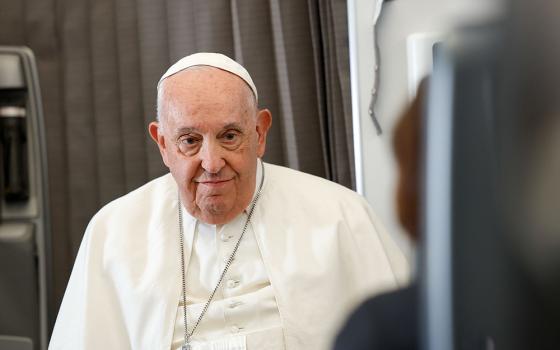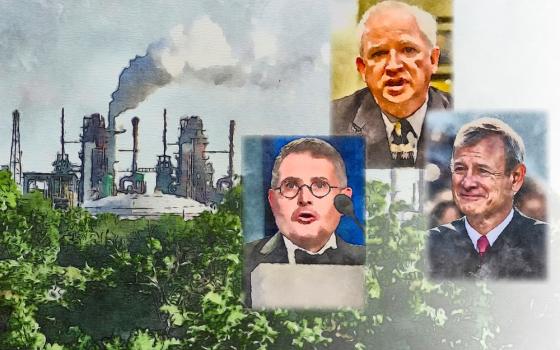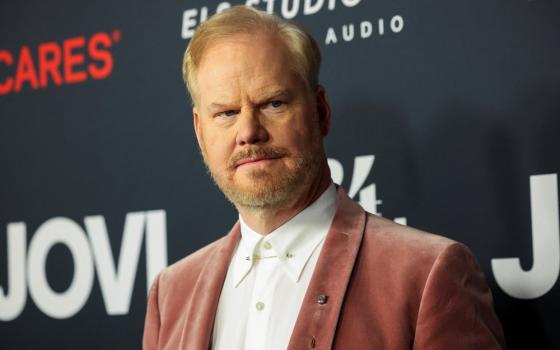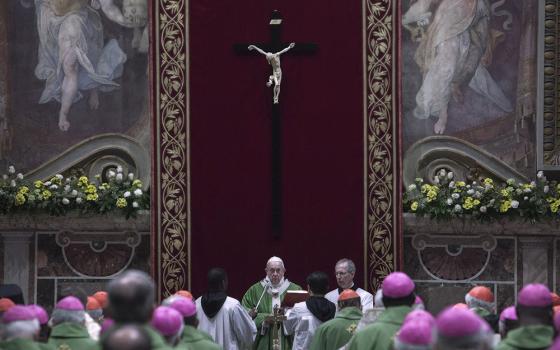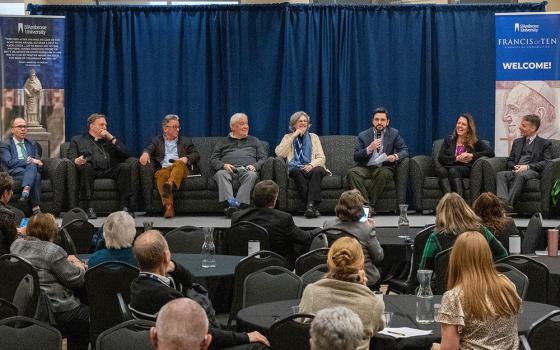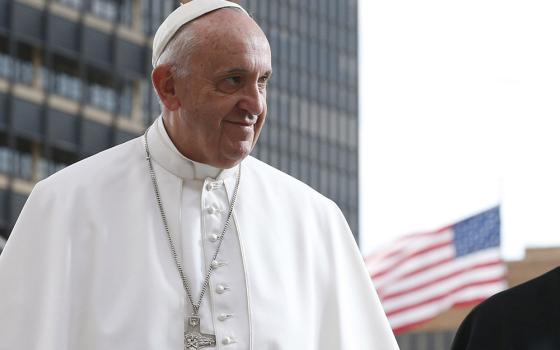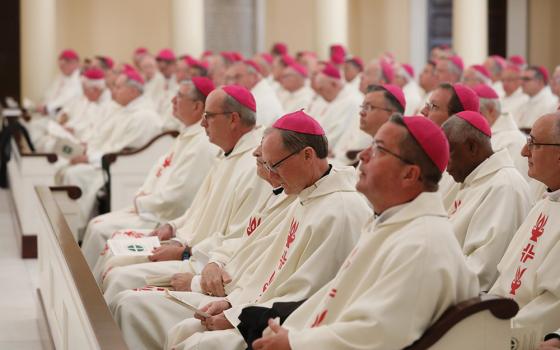Rabbi Abraham Skorka and Pope Francis embrace after visiting the Western Wall in Jerusalem May 26, 2014. They have been friends for 25 years and co-authored "On Heaven and Earth" in 2010. (CNS photo/Paul Haring)
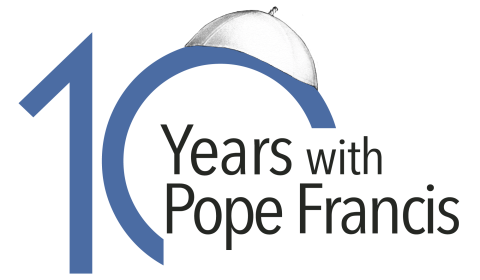
Thirteen years ago, the then-cardinal archbishop of Buenos Aires and I began to ponder topics that were later presented in our book On Heaven and Earth (Sobre el Cielo y la Tierra). We had already enjoyed many lively dialogues, so we decided to render them into written form.
I remember the moment I suggested that we might write a book about God. Jorge Mario Bergoglio's reply was that we should instead write one about the things that challenge and confront the everyday lives of ordinary people. It instantly became clear to me that we both shared Jewish philosopher Martin Buber's vision of the search for God: human beings can only approach God through our relationships with other people.
We set no limits to our conversations. We simply expressed our ideas and beliefs while respecting and trying to deeply understand the ideas and feelings of the other. We spoke heart to heart.
Because of our trust and openness with each other, we were able to explore even the immensely painful subject of the Shoah. Our conversations frequently touched on the responsibility that Jews and Christians share not to stand idly by when people are being oppressed or persecuted.
Materials from the pontificate of Pope Pius XII are pictured in the Vatican Apostolic Archives in this Feb. 27, 2020, file photo. The Vatican announced in June 2022 it will publish online documentation detailing Jewish people's petitions for help to Pope Pius XII during World War II. (CNS/Paul Haring)
For our chapter "On the Holocaust," he listened to the questions that most disturbed me about the public silence of Pope Pius XII. Perhaps this policy saved many people's lives, but how many others died because of it? My parents had told me the names of their uncles and cousins who were murdered in the death camps, names that I later discovered in the various official records about that unspeakable time.
Their names and verse 3:8 from the book of the prophet Amos — which states that a person of faith, like the prophet, cannot be silent in the face of malice — prompted me to tell Cardinal Bergoglio that I could not in any way accept Pius XII's passivity. His answer was decisive: The Vatican's archival files must be opened, the truth must be known and any errors must be acknowledged.
As Pope Francis, he showed his desire for transparency when on Oct. 22, 2019, he instructed that the name of the Vatican Secret Archives be changed to the Vatican Apostolic Archives. The next year, on March 20, 2020, the Vatican archives were opened to researchers from all over the world at his direction. Pope Francis was true to his word.
More recently, I again witnessed his preference for action and directness when he disregarded established diplomatic protocol and went to the Russian embassy to the Holy See to personally protest Russia's invasion of Ukraine to the ambassador. This simple and courageous act had been lacking among too many church leaders when the Nazis' genocide of Jews was underway.
In our chapter "On Interreligious Dialogue," Cardinal Bergoglio recounted the criticism he had received from some quarters for praying with people of other or no religious traditions. I remember his deep commitment to praying together — never in any syncretistic sense, but simply by virtue of being sisters and brothers, children of the same Creator. He has consistently maintained this priority during his pontificate. For instance, there has never been such an outreach by the Catholic Church to rapprochement with the Islamic world as Pope Francis has initiated. Again, he is true to his commitments, to his word.
Pope Francis washes the foot of a prison inmate during the Holy Thursday Mass of the Lord's Supper at Rome's Casal del Marmo prison for minors March 28, 2013. Pope Francis washed the feet of 12 young people of different nationalities and faiths, including at least two Muslims and two women, who are housed at the juvenile detention facility. (CNS/L'Osservatore Romano via Reuters)
In our final chapter, "On the Future of Religion," I suggested that if human beings "can develop a truly humble attitude, we can change the world." Cardinal Bergoglio replied, "I completely agree with the notion of humility. I also like to use the word meekness, which does not mean weakness. A religious leader can be very strong, very firm, but without exercising aggression. Jesus says that the one who rules must be like a servant. For me, that idea is valid for the religious person in any denomination. The true power of religious leadership comes from service."
Consistent with that perspective, in the first act of his papacy he chose to live in the Domus Sancta Marta guesthouse, not in the regal rooms of the Apostolic Palace. He similarly discarded any hint of opulence in his clothing and rode in a small and simple car. This is not mere posturing for the media. His words to me in private conversation have always stressed the value of meekness. He is true to his word in always encouraging that virtue throughout his service as pontiff.
Advertisement
His dedication to both interreligious dialogue and to humility are evident in his closing words to our book's introduction. He wrote: "With Rabbi Skorka I never had to compromise my Catholic identity, just like he never had to with his Jewish identity, and this was not only out of the respect that we have for each other, but also because of how we understand interreligious dialogue. The challenge consisted of walking the path of respect and affection, walking in the presence of God, and striving to be faultless."
Pope Francis sees life as a path upon which a person must walk with others. One of his favorite biblical verses is Genesis 12:2, "The Lord had said to Abram, 'Go from your country …' " He identifies with it. After all, he was called "from the ends of the earth," as he expresses it, to travel to Vatican City to lead the Roman Catholic Church.
After following that call for a decade, his continuing challenge is to leave indelible footprints on the path he is walking that will guide all humanity to draw closer together and thereby seek the face of God (Psalm 27:8). That is the word to which he will be true.
